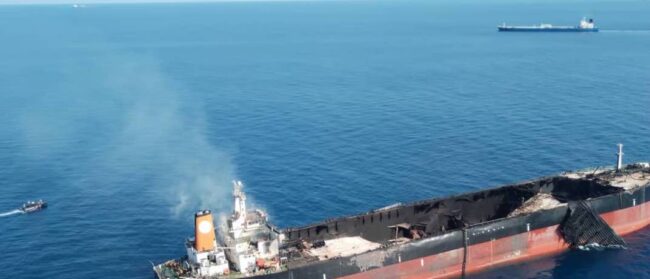David Eubank will accept your call, but there might be missiles disrupting the connection.
Eubank, 61, is the founder and leader of the Free Burma Rangers, an eclectic band of former U.S. Marines seeking new purpose, Myanmar ethnic minorities and rebels with a cause. Since 1996, the nonprofit group has gradually built a following throughout Myanmar with backing from local leaders, documenting war crimes carried out by the national military while distributing humanitarian aid.
Eubank spoke with the Globe from a car driving outside Lutsk, Ukraine, a country that his organisation has recently entered. As the road rumbled and the connection cracked, Eubank spoke about the intense fighting in Ukraine, then switched to talk of Texas and the Alamo, a symbol of independence now nearly two centuries old.
“I believe in the whole thing of freedom to this day,” he said.
Eubank is a devout Christian raised in Thailand by missionary parents. He and his wife, Karen Eubank, made faith and family central to their organisation, which also draws from David’s own experience as a former member of the elite U.S. Army Rangers and Special Forces.
The couple has raised three children across various conflict zones – now in young adulthood, the trio help their parents run family programmes in the field while on university breaks. With Eubank’s dual role as a combat-trained philanthropist and a spiritual leader who performs baptisms and other rites, he eludes any easy description.
“You don’t surrender to fear or comfort or pride or the threats of the enemy,” Eubank said, adding that he only surrenders to love and God.
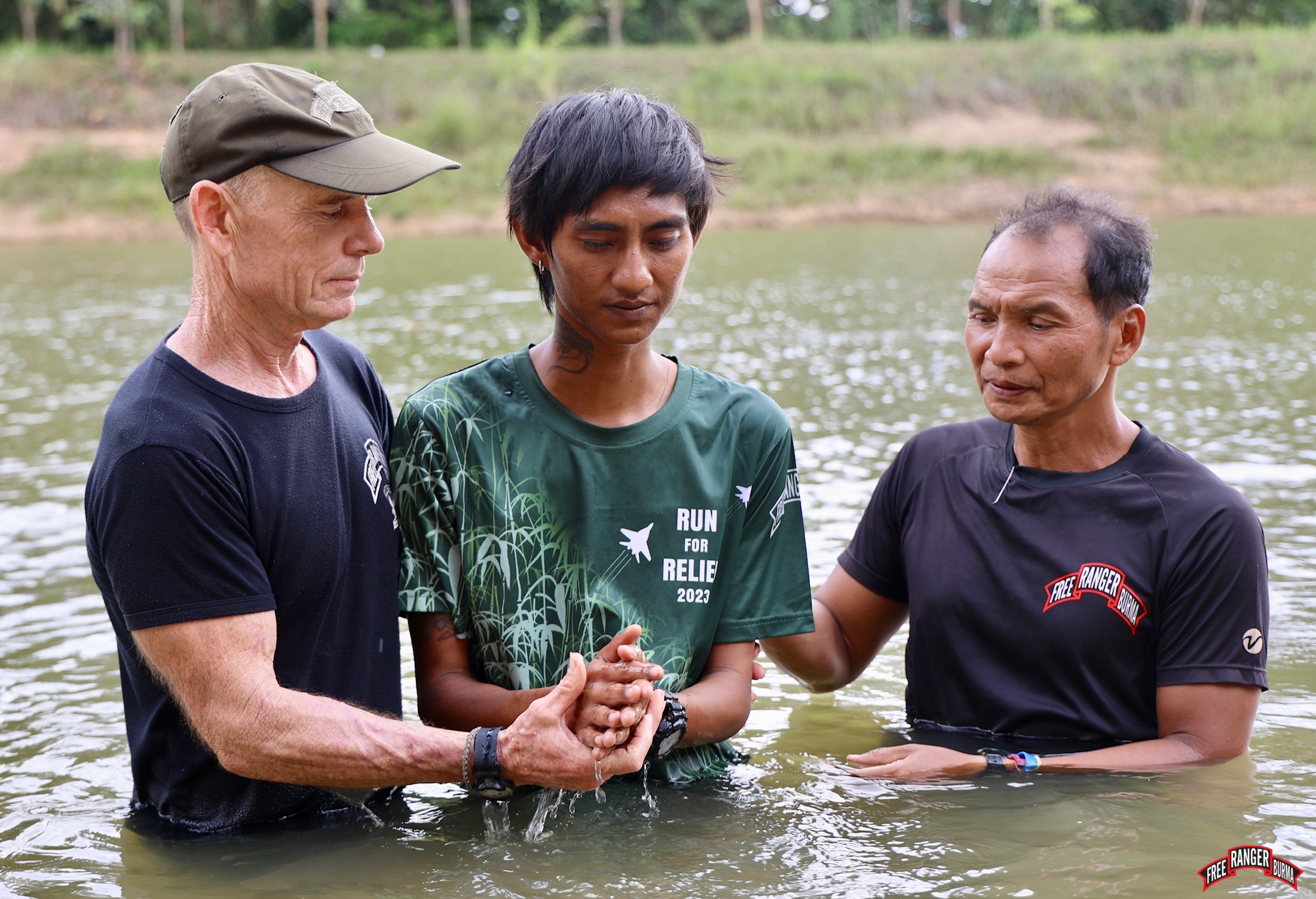
In Myanmar, decades of civil war and international isolation have created severe barriers to humanitarian aid. That already challenging landscape was further exacerbated after the 2021 coup that ousted the elected government of state counsellor Aung San Suu Kyi and unleashed a brutal chapter of widespread violence and lawlessness under yet another junta.
Amidst the scorched-earth campaign waged by the national military in its struggle to maintain control of the country, Eubank’s Rangers may be distinctly well-suited to fill a vacuum of service provision and information-gathering around Myanmar.
Eubank said the quasi-clerical yet diverse humanitarian group operates with “no safety rules”. The organisation’s website states a total of 59 rangers have been killed since the group’s beginning. Though some died from disease, most were documented as perishing from gunshots, mortar attacks, air strikes or other actions by the Myanmar armed forces.
You don’t have to have any religion. As long as you do this for love, you don’t run, and you can read and write in some language to get the news out, you can be a Ranger.”
David Eubank
The Rangers focus on three key areas, according to Eubank. These are providing humanitarian aid such as food, shelter, clothing and medical assistance; documenting atrocities through interviews, photos and videos for media dissemination; and offering a range of trainings, from emergency medical care and logistics to what might be tactical instruction on landmine clearance and battlefield communication.
“Now there are about 150 teams deployed in every part of Burma, representing 16 ethnic groups,” Eubank said. “You don’t have to have any religion. As long as you do this for love, you don’t run, and you can read and write in some language to get the news out, you can be a Ranger.”
Though Myanmar is central to the group’s purpose, its website and prolific social media channels document missions abroad.
With an address in the U.S. city of Colorado Springs and a post office box in Chiang Mai, Thailand, the Rangers describe themselves as “a multi-ethnic humanitarian service movement working to bring help, hope and love to people in the conflict zones of Burma, Iraq and Sudan”.
Financial records on the Rangers’ website declare about 2,800 donors, mostly private individuals, churches and organisations donating to the group’s tax-exempt public charity, Free the Oppressed. For the last fiscal year, the organisation received more than $7 million for everything from medical supplies and cameras, to Bibles and Ranger-branded t-shirts.
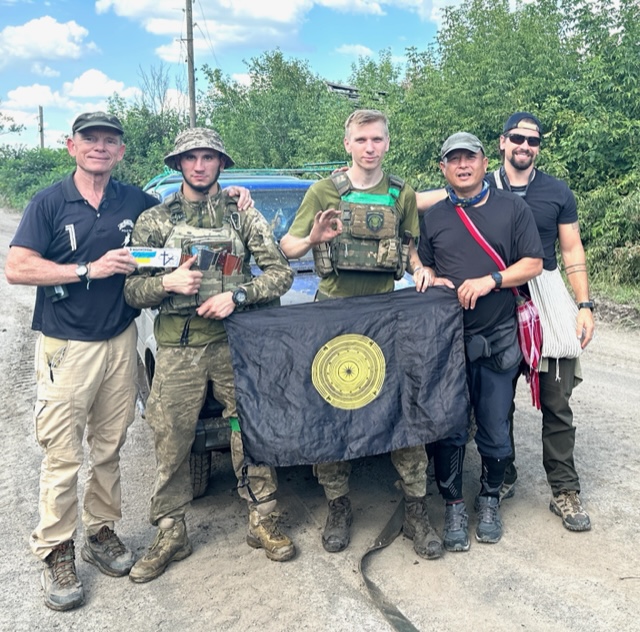
Photo courtesy of Free Burma Rangers.
The group’s nonprofit revenue nearly tripled from 2020 to 2021 following the military coup in Myanmar.
Aside from records, the Rangers’ website is full of regular updates on the intense civil warfare following the coup – including graphic images from the scenes of massacres reportedly committed by the national armed forces. The military has in turn claimed the volunteer organisation “was formed by Vietnam War veterans [and] are in fact militants” who train ethnic armed groups to attack its bases.
Eubank denies these accusations and has long maintained his focus is on protecting the public, not confronting the military.
“Of course, I’m angry. Of course, I’m going to support the people against [the military]. But I also pray for them, their hearts to change,” he said.
Although Thai was Eubank’s first language as a child, he was born in the U.S. and later returned there for university in Texas. He joined the U.S. Army after that, serving as an Army Ranger reconnaissance platoon leader for counter-narcotics missions in Central and South America before joining the Special Forces.
Eubank left the military service in 1992 and entered seminary school. As he tells it, about a year after that, representatives of the Wa people – who hold a powerful, two-region enclave in Myanmar along the Thai and Chinese borders – reached out to Eubank’s missionary father to request his help.
That would be the start of the family’s work in Myanmar.
We’re not a militia or an army, but we’re not pacifist. … If you have your own weapon, then you can take it. But you can’t use it except for defending [internally displaced persons] or yourself.”
David Eubank
From their founding in 1996, the Free Burma Rangers have worked closely with ethnic armed organisations, including the Karen National Liberation Army and the Kachin Independence Army. These groups safeguard the Rangers, many of whom share the same ethnic backgrounds.
In return, the Rangers typically provide expertise and training in field medicine. The organisation has trained more than 7,000 people to date. Eubank said the group does not provide arms or military training to its members or to ethnic armies – but also doesn’t forbid anyone from carrying guns.
“We’re not a militia or an army, but we’re not pacifist,” Eubank said. “If you have your own weapon, then you can take it. But you can’t use it except for defending [internally displaced persons] or yourself.”
Eubank himself was filmed taking up arms against ISIS fighters during the liberation of Mosul in 2017 in a documentary about the Rangers from a Christian production studio.
One wounded ranger from the battle claimed Eubank killed three fighters, even after he was shot in the arm.
In Myanmar, Eubank’s policy is to get close to but avoid the military.
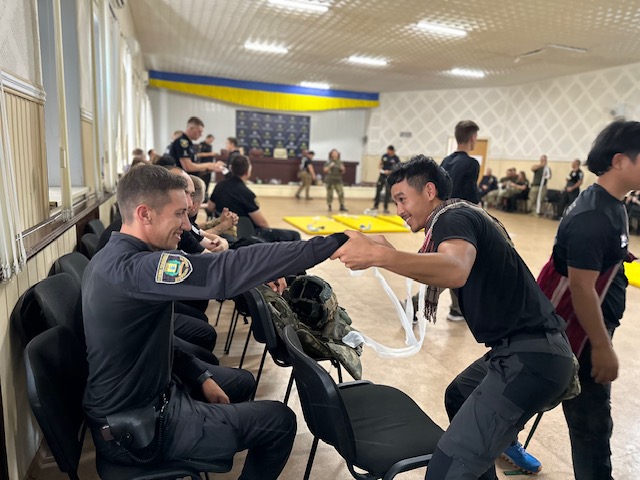
Still, the diplomatic concern of Rangers potentially acting as gunrunners for ethnic rebels in Myanmar has been documented in leaked cables transmitted to the Bangkok and Yangon embassies from the U.S. State Department.
In one mishap, Eubank was caught on camera wearing a partial U.S. military uniform at a Shan National Day Rally, an annual festival where political and military leaders of the Shan people recognise and celebrate self-determination. According to the cable, this allegedly generated the perception the Rangers were providing weapons to the Shan State Army.
The cable also suggested this incident – along with some disagreements between Eubank and the State Department over Thai refugee policy – prompted the department to limit contact with the Rangers and instruct Eubank to resign from the U.S. Army Reserve. Later, the Myanmar government claimed the photo of Eubank in uniform was evidence that the U.S. military was working with Shan militants and summoned the Defense Attache in Yangon over the issue.
While there is no evidence that the Rangers funnel weapons to rebels, State Department investigators stated in the cable they “believe there are other individuals who do help armed ethnic groups in Burma procure weapons, some of whom are former U.S. military. Due to the nature of his work, Eubank is probably aware of who they are and precisely what activities they are engaged in.”
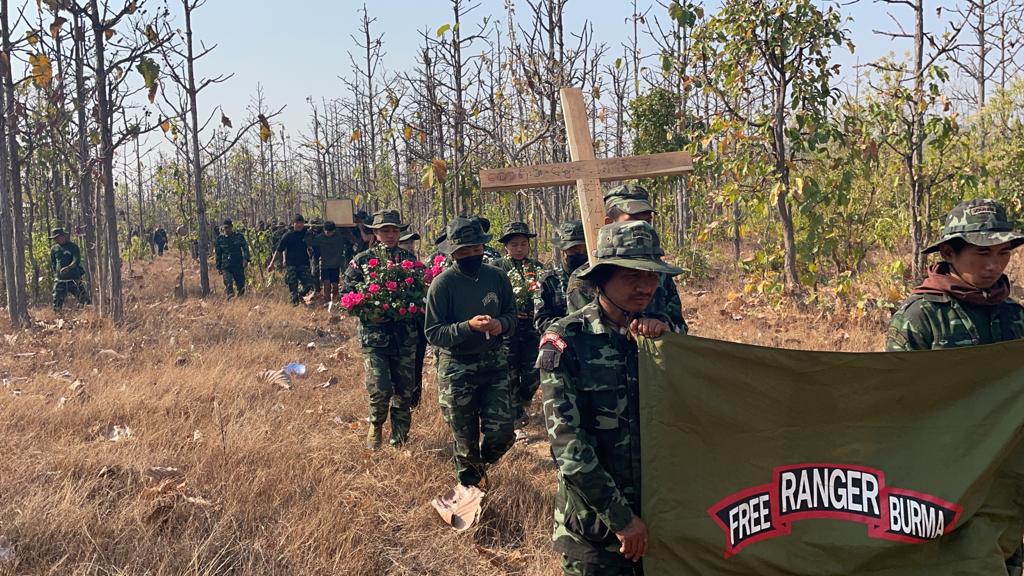
Generally around the world, small communities of ex-U.S. military personnel volunteering to enter foreign conflicts have caused some – such as former Human Rights Watch researcher David Scott Mathieson – to suggest “war zones (like in Myanmar) attract a rogue’s gallery of adventurers, fantasists and psychopaths. Eubank and his Free Burma Rangers (FBR) have been called all those and more.”
But Mathieson acknowledged that those who find the group’s faith-fueled humanitarian work off-putting cannot go so far as to claim that the Rangers have been ineffective.
Flitting between frontlines, Eubank doesn’t shy from the martial realities of his calling. When asked about balancing love against vengeance, he spoke about a form of justice that requires punishment motivated by the former.
“Justice has to have love in it so that when someone has done something wrong, the punishment must be one of love,” Eubank said. “That might be imprisonment or any number of other punishments to help them see the error of their ways. You might even have to shoot them, they might even die, but you’re just going to kill their body, not their soul and that’s better than letting them continue – body and soul – to wreak havoc on others and themselves.”

